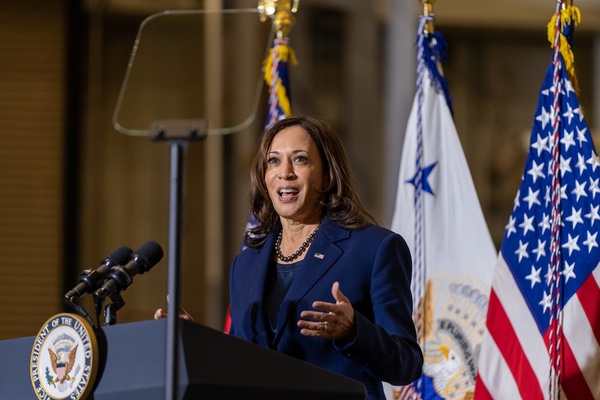How America wins the futureby Frank Slazer
|
| NASA can help advance many of this administration’s objectives here on Earth. |
While military space priorities are often driven by the threats we face and commercial space is driven by markets, NASA—from its earliest days when President John F. Kennedy chose to go to the Moon—is most effective when strongly supported by a presidential administration.
NASA can help advance many of this administration’s objectives here on Earth, particularly its goals of promoting inclusion and diversity, fostering unity, and bolstering American leadership in the world.
President Biden understands that NASA is a source of national pride. He has a Moon rock prominently displayed in the Oval Office. The rock is a “symbolic recognition of earlier generations’ ambitions and accomplishments, and support for America’s current Moon to Mars exploration approach,” according to NASA.
The president’s support of the agency includes a 5% increase in its budget request, in part to support climate change research. The administration has gotten behind the Artemis program, which aims to return humans, including the first woman and first person of color, to the Moon by 2025.
Space exploration has a long history of bringing people together and visibly showing American technology and leadership. Just over 50 years ago, roughly 600 million people worldwide—including just about every American—watched as Neil Armstrong set foot on the Moon for the first time.
As young people of all stripes see a new generation of astronauts—a more diverse one that reflects America today—return to the Moon, there’s no doubt that many of them will be inspired to pursue careers in math, engineering, or science.
Investing in space exploration can help the president achieve another goal he campaigned on: working across the political aisle.
Republicans and Democrats on NASA’s authorization and appropriations subcommittees in Congress have been supporting space exploration initiatives for years.
This bipartisan support for NASA reflects the will of ordinary voters. Seventy-four percent of Democrats and 71% of Republicans hold a favorable view of the agency, according to Pew Research.
| Space provides a highly visible place for our country to work with other free peoples to do great things and to share in the rewards of that work. |
The national programs supporting NASA’s Artemis program, the Orion spacecraft, Space Launch System, and Exploration Ground Systems are reinvigorating our aerospace industrial base. They’ve helped provide economic stability to a large and diverse group of small and medium-sized aerospace companies during the pandemic.
In addition, the small businesses that are part of the Artemis program help develop a highly skilled STEM workforce in areas of the country that otherwise wouldn’t have much opportunity in these types of jobs.
Space has the potential to bring together not just US partisans but countries, too. Exhibit A is the International Space Station. It’s the largest technical cooperation program in history, with participation from many nations, including the United States, Europe, Japan, Canada, and Russia, whose cooperation has been essential to the space station’s more than two decades of successful operations.
NASA’s Artemis program involves collaboration among more than a dozen nations, with the European, Japanese, and Canadian space agencies all taking roles in either the Orion or Gateway programs. Australia recently signed on to be part of the Artemis program’s lunar surface program.
Thirteen nations have signed onto the Artemis Accords, a set of principles that establish guidelines for peaceful exploration of the Moon, Mars, and other celestial bodies. A more robust Artemis program would provide additional opportunities for international cooperation and prepare humanity for the future exploration of Mars.
These efforts are especially important as the United States strives to contend with the rise of China. Space provides a highly visible place for our country to work with other free peoples to do great things and to share in the rewards of that work.
Initiatives like these—not to mention the agency’s ongoing efforts to further expand human spaceflight or develop new technologies like nuclear power and propulsion that are safe for space—can garner strong support from Democrats and Republicans alike.
By championing a more robust space exploration effort before the National Space Council, Vice President Harris can help unify our country and signal to the rest of the world that the United States will continue to be first among equals in the years to come.
Note: we are using a new commenting system, which may require you to create a new account.
